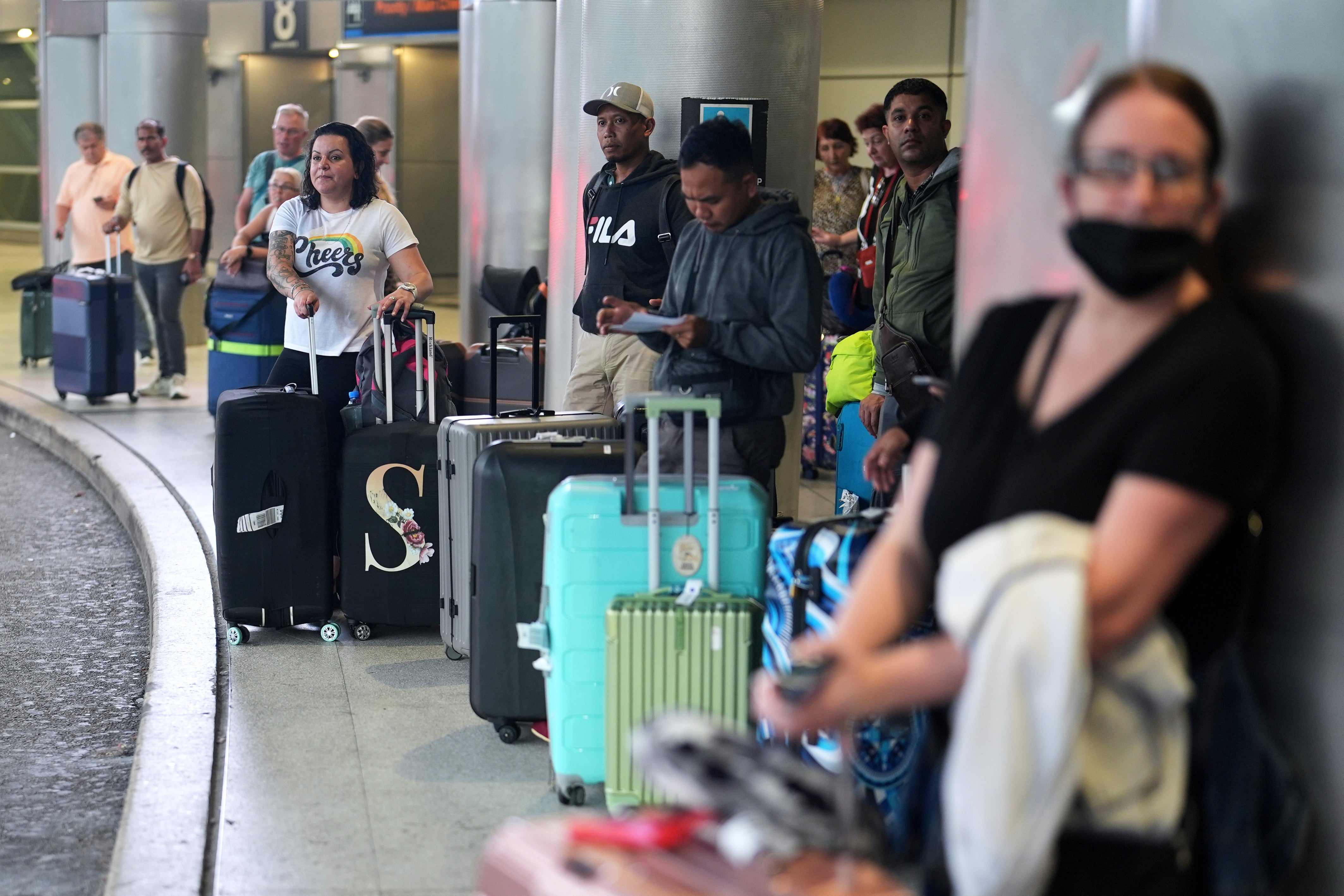There’s no place like home for the holidays — but make sure you don’t get robbed on the way there.
A new scam is on the rise that tricks flyers into thinking their travel plans have been canceled with an eerily convincing text or call. Cybercriminals have been known to use fake social media accounts to impersonate major airlines and now are using false websites and artificial intelligence to perfectly mimic airline workers who want to help rebook a flight.
The fraud starts simple enough with a text that looks like it’s from a real airline, claiming that the traveler’s flight has been delayed or canceled shortly after the flight was purchased. Scammers make their messages look official with real details like airline names, logos, and flight numbers to impersonate real airline alerts. The messages are often targeted during weather chaos or busy travel periods — like the holiday season — to appear even more believable.
The texts, often repeated and escalating in urgency, are meant to induce panic by using phrases like “act fast” or “your seat will be canceled.” The scammers use this method to urge customers into “rebooking” their flights or even worse, sharing their personal details, according to cyber expert Kurt Knutsson.
However, the flight was likely never canceled, and the airline’s website might have been fake in the first place. Con artists are building fake airline websites and even buying Google ads to trick customers into buying phony flights. Then, once they “cancel” the flight, they can cash in on even more stolen money.
“Scammers are blasting out fake airline cancellation emails and text messages that can easily be mistaken for the real deal,” the Better Business Bureau warned when the scheme first came to light last summer.
“Confirm the information in the message – such as the flight and reservation numbers – is correct before calling customer support,” the BBB continued. “If you’re unsure if the message is legitimate, don’t call the customer service number included in the message. It could be fake. Go to your airline’s real website and look for their customer service number there.”
As flight prices skyrocket due to inflation, customers stand to lose thousands of dollars if they buy or re-book expensive tickets from a scammer and never get their money back.
In August, a passenger fell victim to a similar airline scam when a United Airlines worker accidentally transferred him to a fake airline to rebook his flight. The scammer “rebooked” his flight and charged him $17,000, leaving the traveler to learn that United had no record of his payment.

“I know it. I know I called the right number,” the customer, Ryan Smoker, told NBC at the time. “Because it’s one thing to call, call the wrong number entirely and get scammed. It’s another thing to call a trusted source, or what you think is a trusted source, and get scammed. And if it’s happened to me, I can pretty much guarantee it’s happened to other people.”
In order to stay safe from travel scammers this holiday season, it is firstly important to stay calm. If a message uses aggressive language or tries to panic you into rushing your decision, remember that taking a moment to verify your travel details could save you time and money.
Next, make sure to double check flight changes through your airline’s official website or app. Rather than clicking on a link that could expose your personal data, log in to the airline’s portal to make sure the details are correct. Plus, make sure that the URL, email address, and messages that you are being sent all make sense and include no typos: bad grammar or punctuation can be a sure sign of a cyber scam.
Finally, report messages impersonating airlines to the Federal Trade Commission. Calling out fake alerts helps agencies protect other travelers.


